Y.Sunita Chowdhary
Uthura Parthasarathy is the youngest talent in the film industry. Spotted by Kartik Ghattamaneni for the movies, Uthura is fast making waves in the field of editing. She is currently in the news for her latest and biggest hit Karthikeya 2. She not only edited the film with a unique pace and rhythm but showed great professionalism and spirit by downplaying her effort and attributing the film’s success to teamwork. Uthura is a journalism student and has been in Hyderabad since 2003. Her father Shri Parthasarathy worked in the Hindu in the pagination and he did tell her about the limitations in the profession. Uthura had made up her mind by then and she reminisces, “I studied in the Loyola Academy and my subject was mass Communication. I had a fetish for broadcast journalism as I watched a lot of television but dad saw the struggle, late night working hours of the scribes and told me to look at other options. We had special classes for photography and video editing and I was drawn to the latter. I did wedding shoots soon after college, it was fun in the beginning but later got redundant. About wedding shoots, if you make a plan before the event and if you know the family then it will be definitely interesting. It became routine and business-like and after a year I shifted to advertising. I was with PAD for four or five years and while working I got to know Karthik Ghattamaneni.”
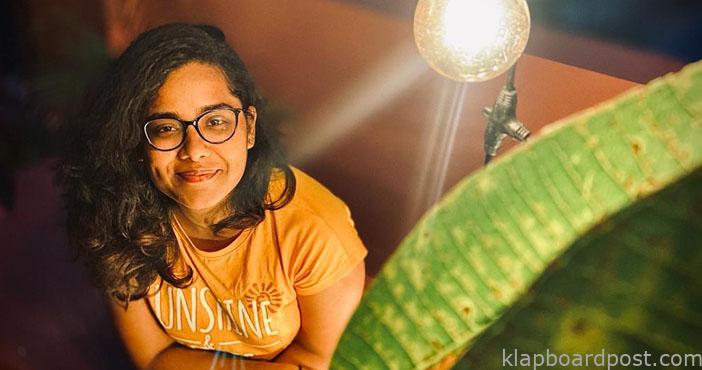
She adds, “During lockdown I got an opportunity again and before that I was asked to work on Bloody Mary directed by Chandoo Mondeti. I didn’t go for it but when K2 came up, I thought these people must have seen something in me which is why they called again. I thought I would give it a try and now I am done with the third film. When I was at PAD, the first 3 to 6 months were difficult. The editing in advertisements is different from what we did at weddings. There was never any guidance and also I wasn’t working under any senior. I was doing my own research and was the only editor I was working at PAD. I was doing social media advertisements and project based advertisements. I would check campaigns of the world, youtube videos, how bigger brands and other ad agencies are doing, The transition was slow but the work was challenging and enjoyable. If it is a one minute advertisement, we have to say it in 50 seconds and the rest goes into making a logo etc. I would get feedback from people whose opinion I valued. I was learning by myself and worked on at least 50 plus brands. I worked on bigger brands that you might not work on a daily basis. It is a creative challenge as you need to know who your opposition is and how you can advertise your brand.”
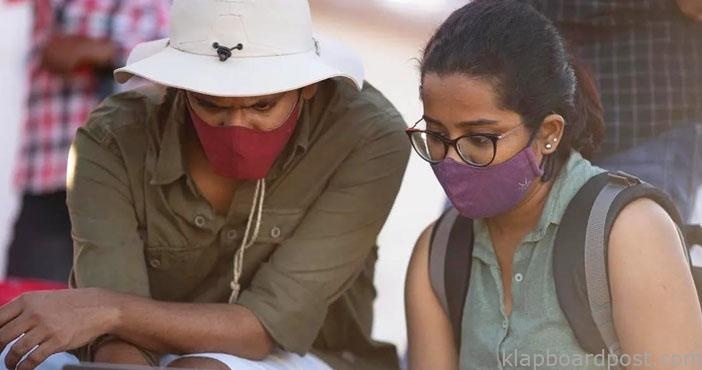
While being exposed to some impressive projects, did she gain any mentorship from a senior or filmmaker? Uthura says whatever advertisements she edited at PAD was really good but when Kartik called her for K2, she had left PAD. It was a lockdown and she was working from home, and wanted a three month break. “I was working immediately after my academics and didn’t take a break. I edited the Golconda Resorts advertisement and Kartik had seen my editing skills. In terms of editing, I haven’t met any mentors. After a year in PAD I was given a promotion and given a team of four members to work under me. We were handling all retailer brands, it was a huge set up for me. There was no mentorship and only after coming here, Kartik taught me a lot of things. I did K2, was online editor for Dhamaka and another small project not titled yet. I was involved for the last one and a half years on K2 and didn’t have time for anything else. I did want to go to another post production and see how it works but there has been a time scarcity.”
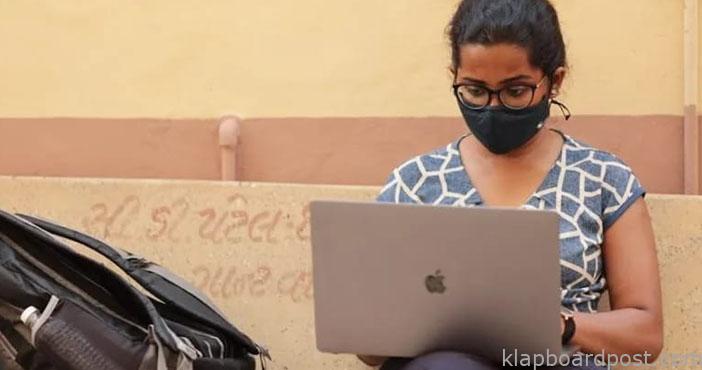
Is there a template or formula for storytelling in editing? Uthura responds, “Everything differs when a story comes into place. There are a lot of chances that can be jumbled in post production based on the flow of cinema. For genres it might change but we don’t have a set template for editing. Are directors picky about edits? I’ll put it differently. There are a lot of differences between director TRinadh Rao Nakkina and Chandoo Mondeti. Chandoo on the set when I was online editor would never see online edit, he would focus on direction. Trinadh wants to see and always see online edit; It is about how much he can improve. On the other hand during post production, Chandoo left us on our own. When we were ready to shoot, he was ready to watch us and give us his feedback. Trinadh would mentor on the set – he would tell us to take this and that expression, take that cut etc. By doing this, his job also becomes easy when he goes to post production. He knows what else he can shoot. It varies from director to director.”
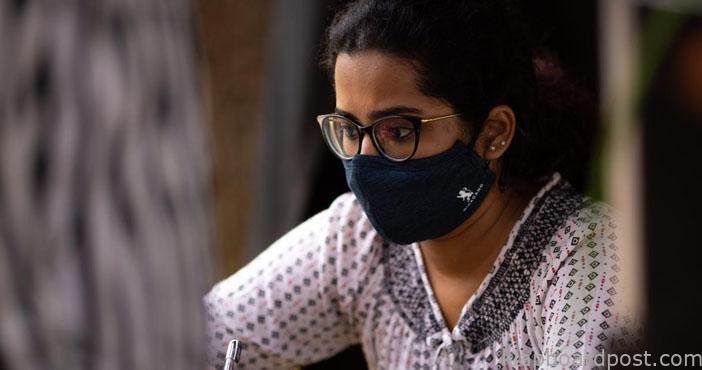
Has she ever faced a technical challenge? How did she resolve it? The editor hasn’t faced much and even if she did encounter any, she banked on Google search. ‘You have to search and figure out what’s wrong. K2 is a heavy and huge project file and it would crash. I would search for solutions from Google and Youtube. As far as creative challenges are concerned, there will be a lot of days when you have a block and the best thing to do is take a step back. Relax, don’t think about the project, after a couple of days – look at the project with a fresh eye. You need a new perspective if you want to overcome anything in terms of editing. In the beginning there was a transition, I would rush a lot. I would do fast cuts and not give long pauses in between conversations. Kartik would tell me that I needed to know when to rush and when to pause. I understood I needed patience, little nuances because we are showing to an audience who don’t know anything about it, they are seeing it for the first time. I should be seeing it from their point of view. We are insiders and we know what it is but think from a layman’s (outsider’s perspective) point of view is what Kartik said. Even now when I edit, advertisements come to my mind. We have 30 seconds or 40 seconds and I rush. I sometimes overlook the fact that I am working on a film and not a commercial.” This is Uthura’s greatest quality, seeing her limitations, admitting it and making sure that she doesn’t repeat the mistake.
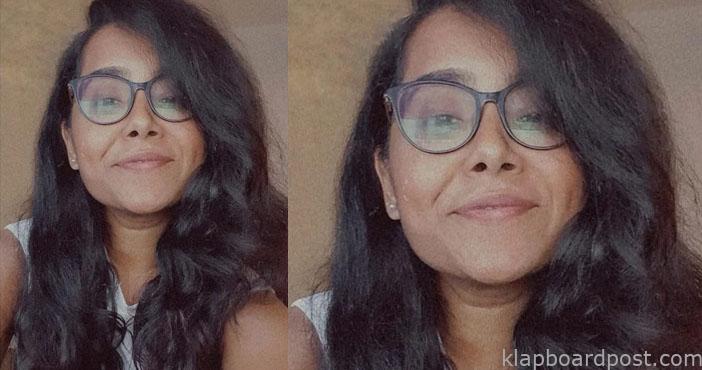
What if the client wants changes? She shares, “You will always have one version of what you have done as an editor, one version as an editor-director collaboration, one version of the producer. At the end of the day, it is the film you are working for. You have to satisfy different people but you end up working in the interest of the film.” Does Uthura miss chilling out with friends? “I don’t go to gym, I play badminton and during the two months before release of K2, I would miss my room. I would get up in the morning, go at 8 am to Annapurna Studios and the office, sleep, shower and go back to the office. At the end of the day, it is my passion to edit. My parents are indeed proud of my work but they are a tad worried about my health.”
How is the feeling of getting the biggest success at such an early stage in her career? She avers, “None of us expected it to be such a huge hit. It is a 100 plus crore and we are still counting. I didn’t get tickets during the release. People didn’t bother much when I said I was working for K2 but after the release, everyone reacts differently and it is nice. This is a team effort and we worked day and night to bring it to the audience. The success is surreal, I couldn’t digest it. It didn’t enter me at all. K2 is a very fresh subject, not a lot of films came up with themes like this in the past two years. In terms of mythology and history, it was fresh to watch. The 2 hours 25 minutes..was set and we have achieved it. The second was heavy, there was a lot of content to digest as well. We didn’t want to extend it and make it boring.” Any last minute tensions at your work? “ofcourse. I have to see if VFX work has come in, if DI is done. For me, if I have sent the right files to the departments like sound mix, DI, music, to dubbing…I need to double check. If I send one wrong file, it falls out of sync and is very stressful. We do a lot of versions and variations in a day and you need to know what is being sent and to whom it is being sent.”













